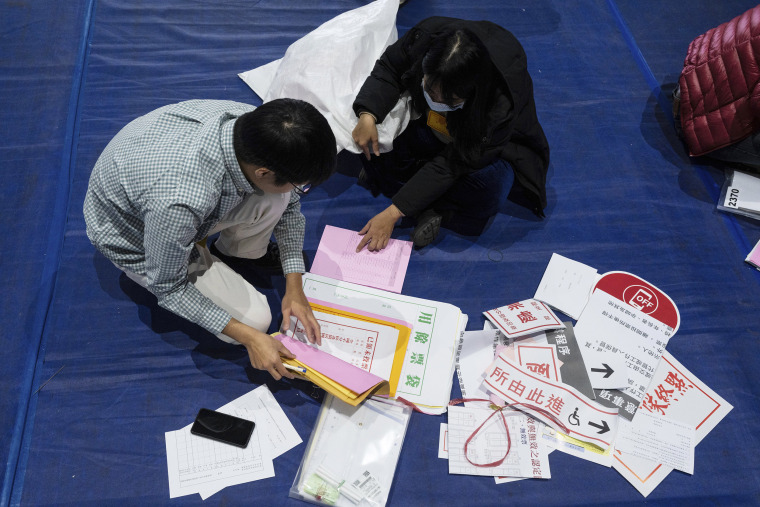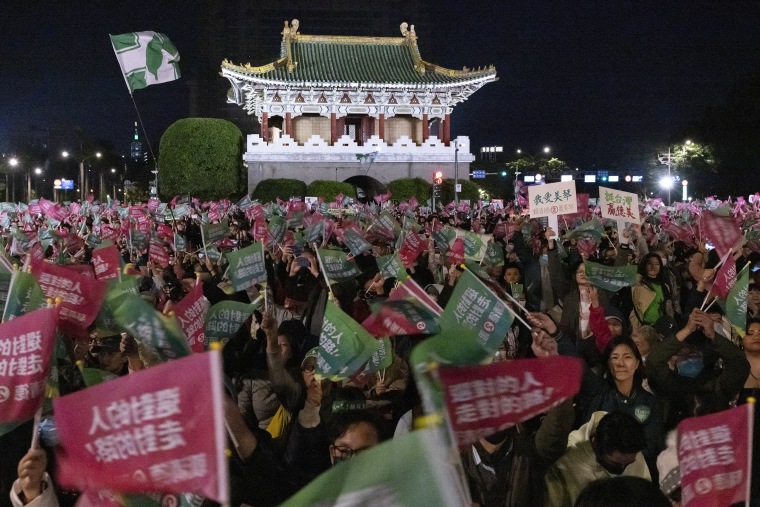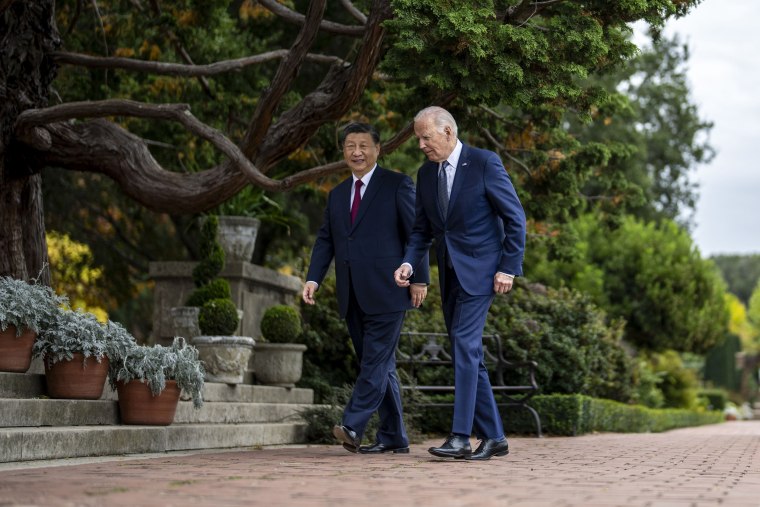TAIPEI, Taiwan — Voters in Taiwan elected Vice President Lai Ching-te as their next president on Saturday, defying warnings from Beijing not to support a candidate it has called a separatist and a “troublemaker.”
The presidential candidate for Taiwan’s main opposition party the Kuomintang, Hou Yu-ih, on Saturday conceded defeat in the election within hours of polls closing as Lai opened a wide lead of over a million votes.
The election, which China had described as “a choice between war and peace,” could test recent efforts by Beijing and Washington to repair relations that in recent years have fallen to their lowest point in decades. The status of Taiwan, one of the strongest democracies in Asia, is among the most sensitive issues between the two superpowers, and focus will now turn to any potential show of force from Beijing in response.
China claims Taiwan as its own territory and has not ruled out the use of force against the island, while the U.S. is Taiwan’s most important international backer. The majority of Taiwan’s 23 million people are in favor of maintaining the status quo, neither formally declaring independence nor becoming part of China.
Lai’s victory extends the eight-year rule of the Democratic Progressive Party (DPP), which is considered the least friendly to Beijing. Relations between Taiwan and China have deteriorated under President Tsai Ing-wen, who was first elected in 2016 and is limited to two terms.
Voters, especially younger ones, were concerned not just with China policy but with economic issues such as unemployment, housing costs and income inequality.
While the final official tally is yet to come in, Lai secured a significant lead over Hou Yu-ih of the main opposition party, the Kuomintang, with Ko Wen-je, founder of the populist Taiwan People’s Party, trailing further behind. Hou and Ko, who both favor closer ties with Beijing, had argued that the DPP’s policies toward China were too confrontational.
“Because of democracy we can stand shoulder to shoulder with the international community,” Lai told NBC News in an interview last month. “We believe in democracy and that makes us different from China.”
As Taiwanese citizens headed to the polls Saturday, Beijing officials vowed to “smash” any attempt at full independence.
Lai will take office for four years starting May 20.

China has in the past fired missiles and staged military exercises in response to developments in Taiwan it doesn’t like, and the election on Saturday could bring another show of force. Taiwan’s government had already accused China of trying to interfere in the election through military and economic pressure as well as disinformation campaigns, while China accused it of “hyping up the threat from the mainland” to gain voter support.
The White House said this week that after the election, the U.S. would send an unofficial delegation to Taiwan, with which it has no formal relations, in what a senior Biden administration official said was an effort to manage tensions and prevent inadvertent conflict. The official, briefing reporters on the condition of anonymity, said any disruption to peace and stability in the Taiwan Strait, a key shipping route, “would seriously damage the global economy.”
The Chinese Foreign Ministry said Friday that the Taiwan election was China’s “internal affair” and that the U.S. should “refrain from intervening” in any form.
No matter the election results, “it will not alter the fundamental fact that Taiwan is a part of China,” spokesperson Mao Ning said at a regular news briefing in Beijing.
Lai, 64, has presented himself as “Tsai 2.0,” said Lev Nachman, a political scientist and assistant professor at National Chengchi University in Taipei.

“What that means is from a cross-strait relations perspective, we’re not likely to see a lot of change in the PRC-Taiwan dynamic, which is to say it’s going to remain very icy,” Nachman said, using the initials for China’s formal name, the People’s Republic of China.
China’s Taiwan Affairs Office has described Lai as a “stubborn Taiwan independence advocate” who if elected would promote separatist activities and “create a dangerous situation” in the Taiwan Strait.
China cut off direct dialogue with Taiwan after Tsai was elected in 2016 and has rebuffed offers of talks with Lai as well. It says it is willing to hold talks only if both sides agree that Taiwan is part of China, a policy reiterated by senior Chinese official Liu Jianchao during a visit to the U.S. this week and one that the DPP says it cannot accept.
In the run-up to the vote, Lai said he would “maintain the status quo,” asserting Taiwan’s de facto independence and actively engaging with the U.S. and other democracies. But he said Taiwan’s door “will always be open to engagements with Beijing under the principles of equality and dignity.”
With Lai’s election, “we’re likely to see the same level of threats we see from the PRC, but threats don’t equal conflict,” Nachman said, noting that neither China nor Taiwan wants to go to war.
The U.S. and China, the world’s two largest economies, have increased their interaction since a November meeting in California between President Joe Biden and Chinese President Xi Jinping, their first encounter in a year.

This week, in what appears to be partly an effort to protect the fragile gains in their relationship from tensions over the Taiwan election, the U.S. and China resumed long-frozen military talks in Washington, while Commerce Secretary Gina Raimondo had a call with her Chinese counterpart, Wang Wentao.
Secretary of State Antony Blinken also met with Liu, the senior Chinese official, on Friday. The State Department said Blinken reiterated the importance of maintaining peace and stability in the Taiwan Strait, and that both sides “recognized the importance of continuing to maintain open channels of communication.”
Janis Mackey Frayer reported from Taipei, Taiwan, and Jennifer Jett reported from Hong Kong.
Source: | This article originally belongs to Nbcnews.com









